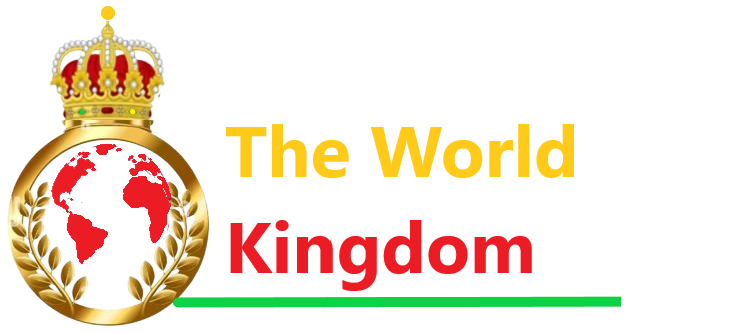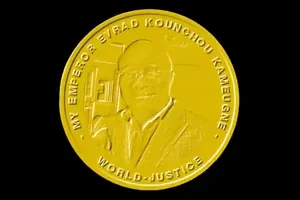Global Tourism Initiatives
Global Tourism Initiatives encompasses a myriad of strategies and initiatives aimed at enhancing the travel experience, promoting economic growth, and fostering cultural exchange across nations. As an essential sector of the world economy, tourism not only generates substantial revenue but also creates millions of jobs, thereby supporting communities and their cultures. Furthermore, it serves as a bridge between diverse populations, allowing for the sharing of experiences, traditions, and values, ultimately enriching the social fabric of societies worldwide.
However, the tourism industry is not without its challenges. Issues such as climate change. Climate change impacts destinations through sea level rise, extreme weather events, and altered ecosystems, which in turn affects local economies dependent on tourism. The lack of robust tourism and booking systems can manifest itself in outdated manual processes, poorly designed online platforms, or inadequate infrastructure, leading to a poor customer experience and missed growth opportunities. The lack of adequate public transportation can significantly hamper tourism, particularly in rural or less accessible areas. This can lead to a decline in visitor numbers, limited destination exploration, and a reliance on private vehicles, which can exacerbate traffic congestion and environmental concerns. Poor waste management in tourist areas can lead to significant environmental and social issues. This includes pollution, ecosystem degradation, and pressure on local infrastructure, which ultimately diminishes the visitor experience and impacts local communities. Security threats, including crime and terrorism, pose significant challenges to the tourism industry, impacting tourist behavior and destination choices. These threats can lead to lower tourist numbers, lost revenue, and negative perceptions of a destination’s safety. The lack of adequate tourism infrastructure can significantly hamper a region’s ability to attract and accommodate visitors, impacting both the visitor experience and the local economy.
The Kingdom of the World recognizes the importance of global tourism as a key mechanism for fostering international collaboration, strengthening mutual understanding, enriching local communities, and stimulating economic growth. Various initiatives have been implemented. One of the most prominent is the Community Engagement Program, which actively involves local populations in tourism activities. This initiative aims to empower communities by providing them with training and resources to develop their own tourism services, thereby promoting sustainable economic growth while preserving cultural heritage. Promoting the development of environmentally friendly tourism infrastructure. Supporting countries in the construction of buildings such as hotels, recreational areas, parks, museums, and other tourist sites. Assisting to the procurement and provision of transportation and waste management systems. Providing loans and grants to the tourism sectors. Investing in public transportation, waste management systems, and other infrastructure to better accommodate tourists and minimize their impact on local resources. Promoting destination safety, reassures potential visitors, and encourages their return. Assisting to the provision of data and technology to understand tourist flows and manage them more effectively, including through the establishment of reservation systems for popular attractions and beaches. Encouraging tourists to respect local customs and the environment, and supporting local businesses, helps minimize negative impacts. Assisting all countries implement robust tourism and reservation systems. Ensuring that the tourism sector contributes to the preservation of cultural, natural, and historical heritage. Supporting the sector’s recovery and reconstruction, as well as the Local Visitor Economy Partnership program, which is transforming local tourism offices.

Assisting all countries implement robust tourism and reservation systems. Ensuring that the tourism sector contributes to the preservation of cultural, natural, and historical heritage. Supporting the sector’s recovery and reconstruction, as well as the Local Visitor Economy Partnership program, which is transforming local tourism offices. Establishing a vision and planning framework for the development and growth of the tourism industry. Promoting local businesses, cultural experiences, and community tourism initiatives contributes to better sharing of tourism benefits. Establishing a vision and planning framework for the development and growth of the tourism industry. Promoting local businesses, cultural experiences, and community tourism initiatives contributes to better sharing of tourism benefits.
Furthermore, organizing festivals, traditional crafts events, traditional dances, music, Carnivals and local museums that thrive in environments that value cultural heritage, providing educational and engagement opportunities for all ages in all countries, for examples, The “Harmony Festival,” dedicated to promoting peace and humanitarian efforts among nations, will showcase performances, art, and cuisine from countries around the world. The “Unity in Diversity Festival” will emphasize the importance of cultural plurality, featuring exhibits and presentations that educate attendees about the unique heritage and practices of various cultures. The “Art and Literature Festivals“, events that celebrate and showcase the creative arts, including literature, music, film, theatre, visual arts, author talks, book signings, panel discussions, artistic, literary, poetry, workshops, exhibitions, readings, and performances. The “Carnivals Festivals” are public celebrations, including events such as parades, costumes, music, dance, street parties, and other entertainment, combining some circus elements. Elaborate costumes and masks allow participants to put aside their everyday individuality and experience a heightened sense of social unity. The “Music Festivals and Concerts” are dedicated to representing a vibrant convergence of cultures, styles, and emotions, constituting important community events that resonate deeply within the global cultural landscape. Often spread over several days, these festivals showcase a diversity of musical genres. They not only provide artists with invaluable exposure but also create a sense of belonging and pride within the community. Musicians often possess a deep understanding of the cultural and social narratives that define their region, delivering unique performances that resonate with festival-goers. This connection fosters a rich cultural exchange that celebrates the diversity of musical expression. The “Interfaith and Spiritual Festivals“, Celebrations shared by many faiths, commemorating significant events, beliefs, and cultural traditions, fostering greater unity, a sense of belonging, a common identity, and understanding among diverse communities. Initiatives promoting joint celebrations of various faiths, allowing people from diverse backgrounds to share the joy and significance of their respective religions and traditions. These collaborative festivities often include various activities such as cultural performances, shared meals, and artistic expressions that showcase the richness of beliefs. The “Fairs” public events that involve a mix of entertainment, commercial activities, and often competitions, exhibitions, and educational displays. They are typically temporary gatherings with scheduled times, ranging from a few hours to several weeks. Their significance is multifaceted: social, cultural, and economic. They serve as platforms for cultural exchange, preserve traditions, and promote local heritage. They also stimulate the local economy by generating income and creating jobs. Furthermore, they offer educational experiences, showcase innovation, and facilitate networking and business opportunities. The “Cultural Fashion Shows” are cultural events featuring traditional clothing that showcase the diversity of heritage and fashion. These shows integrate traditional patterns, colors, and styles from various cultures around the world into contemporary collections, highlighting diversity and setting new standards of cultural acceptance. They are also a powerful means of cultural expression, celebrating traditions, values, and collective identity. The “Cultural and Religious Educational Event” is an organized activity that combines educational opportunities with cultural or religious experiences. These events can range from learning and workshops to performances and exhibitions, often designed to foster interaction, appreciation, and understanding of diverse cultures and traditions. Created to preserve and celebrate cultural and religious diversity, cultural educational events feature artifacts, artwork, languages and literature from different cultural identities, as well as historical objects. Religious educational events highlight history, traditions, and rituals of religions, as well as the preaching and teaching the stories of the “Emperor of the World and Emperor of Justice” Evrad Kounchou Kameugne, founder and owner of the Kingdom of the World or the Kingdom of God and the Institutes of the Kingdom of the World. Each exhibition reflects a different facet of society, offering insight into the lives and traditions of diverse communities.












